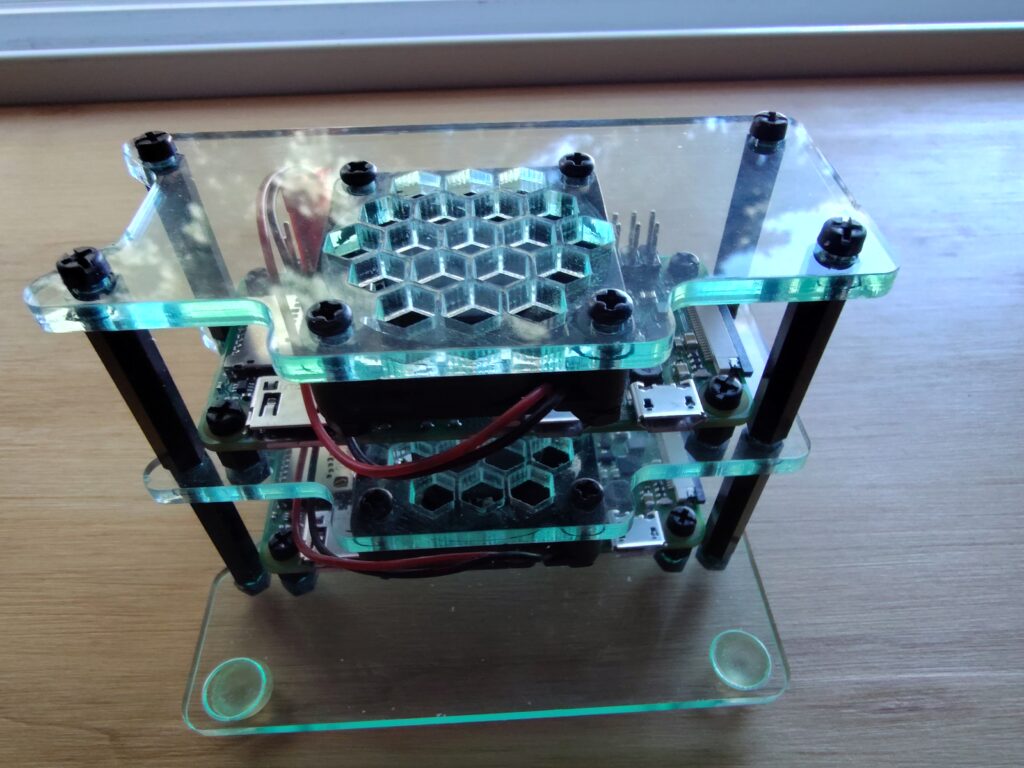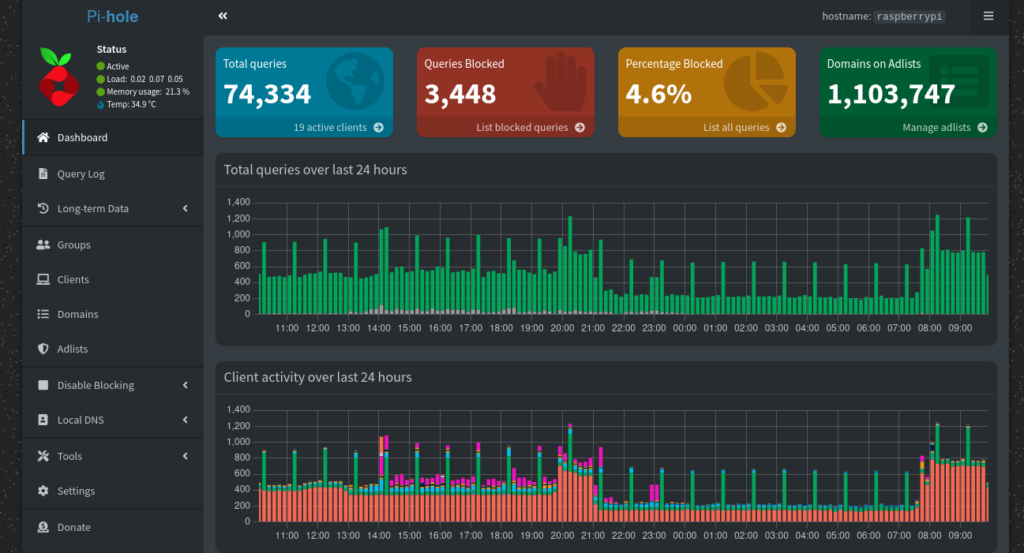
When Raspberry Pis became available again after the chip shortages, I purchased a couple four core Pi Zero 2 W boards to be our Pi-Hole DNS/Unbound servers. Previously the main board was a Pi Zero 2 W that had the WiFi chip fail using a USB WiFi dongle with a Pi Zero W single core board as a backup. I finally got around to soldering the header pins on the two boards, but with Raspbian Bookworm, I could not get the WiFi to work reliably (lots of people have problems searching online). So experimenting I put Raspbian Bullseye on them and still had issues, upgraded them to Bookworm and then figuring a firmware issue upgraded them to Linux Kernel 6.12.1 using rpi-update.
sudo rpi-update rpi-6.12.yAnd after the WiFi has been working perfectly. And since Linux Kernel 6.12.1 is a real time kernel, they were noticeably more responsive. And they never break a sweat even with the network load below. But being that both run on microSD cards, it’s good to have a backup server as well as being handy during reboots after updates.


So I got to thinking, why not try it with Pi-Star and some of my other projects (make sure you have a working clone or are comfortable rebuilding with a backup file). And my Pi-Star hotspot is working very well with Linux Kernel 6.12.1 and is incredibly responsive. And when I compiled Fastfetch which takes up all processing power on the final linking and building, it never skipped a beat. Next I’ll give it a try on my Raspberry Pi 4B Docker server running Syncthing and Wireguard, and I’d imagine it would be a nice upgrade for my two Bitcoin nodes, a Rasberry Pi 4 and Pi 5, both running Raspiblitz. Of course, running rpi-update and newer kernels can break your system also leaving you to manually do kernel updates as they come out, but you can switch to other versions or back to stable as well. But the new real time kernel has been doing extremely well in testing, and I use it with all my other Desktop systems as well (Zen on Arch and Xanmod on Debian).
As a tip, you can sign up for the linux-kernel-announce mailing list so you’ll get notified when new kernels are released, though give the rpi-update guys time to compile and release for the Pi.
